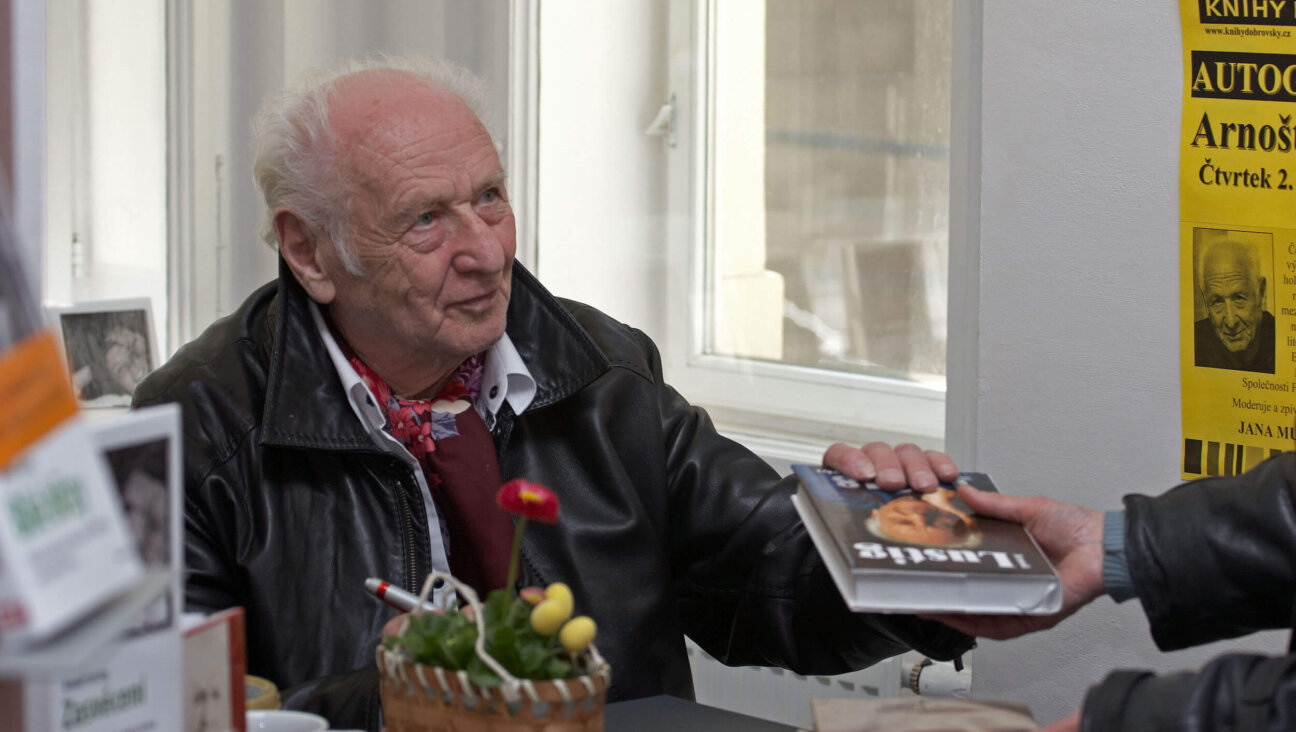U.S. ‘Regrets’ Netanyahu’s Planned Approval of West Bank Construction
The White House on Friday said it “regretted” reports that Prime Minister Benjamin Netanyahu planned to approve of the construction of hundreds of new housing units in West Bank settlements.
“We regret the reports of Israel’s plans to approve additional settlement construction,” the White House statement said. “Continued settlement activity is inconsistent with Israel’s commitment under the road map.”
The White House added that the administration of U.S. President Barack Obama “does not accept the legitimacy of continued settlement expansion and we urge that it stop. We are working to create a climate in which negotiations can take place, and such actions make it harder to create such a climate.”
Earlier Friday, a senior government source had reported that Netanyahu was to approve the construction of hundreds of new housing units in West Bank settlements before he declares a moratorium on building in those locales.
The source from the prime minister’s bureau said Thursday night that the premier informed U.S. officials of his decision to authorize the construction a few weeks ago.
The immediate future of construction in West Bank settlements will be determined in talks between Israeli officials and the U.S. Middle East envoy, George Mitchell, who will visit Israel next week. The issue could be decided during Mitchell’s two-day visit, which will begin on Thursday, according to the source.
“The U.S. commitment to Israel’s security is and will remain unshakeable,” the White House statement reiterated on Friday. “We believe it can best be achieved through comprehensive peace in the region, including a two-state solution with a Palestinian state living side by side in peace with Israel.”
However, it added that the U.S. government’s objective “remains to resume meaningful negotiations as soon as possible in pursuit of this goal.”
The U.S. is working with all parties – Israelis, Palestinians, and Arab states – on the steps they must take to achieve that objective, the White House statement said.
State Department spokesman Ian Kelly said Mitchell and the Israelis had been having a very open dialogue in very intense discussions. He would not elaborate.
But one U.S. official familiar with Mitchell’s Wednesday meeting in New York with Netanyahu envoy Yitzhak Molcho and Israeli Defense Ministry chief of staff Michael Herzog said the Israelis told Mitchell they were going to do it, and he told them they could expect a sharp response.
The official, who spoke on condition of anonymity to discuss a sensitive diplomatic exchange, said the meeting had not gone well.
The official added that the White House statement was released before a formal Israeli announcement of Netanyahu’s plans because we wanted to send a strong signal early on.
J Street, the left-wing pro-Israel lobby, said it is deeply dismayed by reports of Netanyahu’s planned approval of additional settlement construction in the West Bank.
“We share President Obama’s concern that continued settlement growth will make it impossible to achieve a negotiated, peaceful two-state solution to the conflict, which is critical to Israel’s future as a Jewish, democratic homeland,” said the group’s staement.
“It is only with the establishment of permanent and recognized borders as part of a comprehensive peace agreement that we best serve the long-term interests of Israel, the Palestinians and the United States.”
A spokesman for Peace Now on Friday also commended the White House stance. “We reiterate that a settlement freeze is not just in the interest of the United States. First and foremost, it is in the national security interest of Israel,” said Ori Nir, Americans for Peace Now spokesman.
“Settlements are detrimental to Israel. They constitute a burden to Israel’s security services. They create points of friction between Israelis and Palestinians. They drain Israel’s financial resources. They create an impression that Israelis are not interested in a two-state solution,” added Nir.
EU foreign ministers, Abbas condemn Israeli plan
EU foreign ministers on Friday condemned the announcement by Israel that it will construct new housing units in West Bank settlements.
Italian Foreign Minister Franco Frattini said the new construction has been criticized by all 27 EU ministers.
The foreign ministers are holding two-day talks in Stockholm that started Friday.
British Foreign Secretary David Miliband reiterated EU calls for a complete settlement freeze to spur the restart of peace talks between Israelis and Palestinians.
EU foreign policy chief Javier Solana said he is hopeful those negotiations can be relaunched in the margins of the UN General Assembly in New York later this month.
Meanwhile, Palestinian President Mahmoud Abbas earlier on Friday said Netanyahu’s planned approval of the West Bank construction is “unacceptable.”
“What the Israeli government said [about the planned construction] is not useful,” Abbas said after a meeting with French President Nicolas Sarkozy. “It is unacceptable for us. We want a freeze on all settlement construction.”
Abbas also told journalists that a possible summit meeting with Netanyahu and Obama in New York, on the margins of a UN General Assembly meeting, depended on “steps that are taken beforehand regarding a settlement construction freeze.”
Abbas also said he would not meet with Netanyahu until construction in the settlements is halted – a position he has expressed in the past.
The Palestinian president added, after a meeting with French Foreign Minister Bernard Kouchner, that the entire Mideast peace process depended on a freeze of Israeli settlement construction.
The majority of members of Fatah, the Palestinian faction that Abbas heads, oppose renewing talks with Israel while it is building in the West Bank. The Palestinians are also seeking a total freeze on construction in East Jerusalem.
Senior Palestinian negotiator Saeb Erekat Palestinian Authority also criticized the move on Friday, saying it would derail any progress in peace negotiations.
“I think the only thing that will be suspended by this announcement is the peace process,” said Erekat.
Aides to Netanyahu said on Friday said he would be willing to consider a temporary freeze in settlement construction, but that the suspension would not include East Jerusalem.
The hundreds of units whose construction Netanyahu is expected to approve will join some 2,500 housing units currently being built, whose construction also will not be halted.
In closed talks, Netanyahu has said that he will be prepared to go ahead with the move to promote Obama’s peace plan and jump-start stalled peace talks.
“The Americans do not agree with [the approval of new housing units] and are not happy about it, but we put it on the table a long time ago,” the source told Haaretz.
The precise length of the moratorium is still subject to debate, and the U.S. and Israel are negotiating on this issue. Netanyahu does not agree to a freeze exceeding a period of six months, while the Americans are insisting on a nine-month period.
The source added that several Arab states have pledged gestures toward Israel, including opening Israeli diplomatic missions in their territory, holding senior-level meetings between Arab leaders and Israeli counterparts, holding direct telephone conversations between leaders of Arab states and Israeli leaders, and El Al flights to Arab airports.
“A deal with Israel on the issue of construction in the settlements is crucial,” the source added. “Netanyahu’s actions will determine the future of his relationship with President Obama, so this is a crucial trial.”
Likud MK Eitan: Party must unite behind Netanyahu
Likud MK Michael Eitan called on his fellow party members to remain united behind Netanyahu’s leadership as “past experience conclusively proves that any divisions, acts of rebellion or splintering have brought on the demise of the national camp.”
Moreover, Eitan said, the demise of a government supporting West Bank settlements, also brought on the “rise of an administration interested in its eradication.”
Eitan added that while an “open democratic debate on this important issue is legitimate and important, but eventually, under current circumstances and international constraints, only a united Likud led by Netanyahu can steer Israel’s policy in the best way for its people.”
The Yesha Council of Settlements said it wished to remond the public that “Netanyahu had pledged to the Israeli voter to return building in Samaria and Judea to a path of development.”
“Several hundred housing units, even if they were to be approved, do not change the fact that a settlement freeze will cause far-reaching political damage,” the Yesha council said, adding that “when the roar of the festivals dies down, all that is left is a freeze of settlement construction, one brought on by a prime minister from the national camp.”
Ophir Pines-Paz, a dovish lawmaker whose Labor Party is part of Netanyahu’s coalition, said Friday that issuing new building permits was unnecessary and damaging.
“I fear that issuing new permits will foil the next step – a settlement freeze that would build confidence and allow negotiations to resume,” he said.















